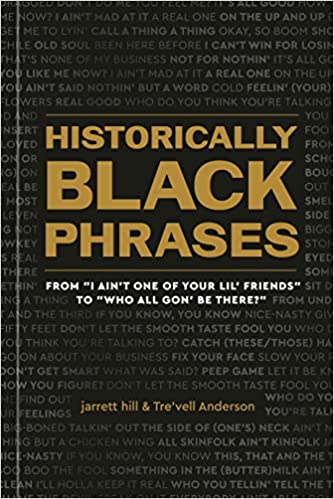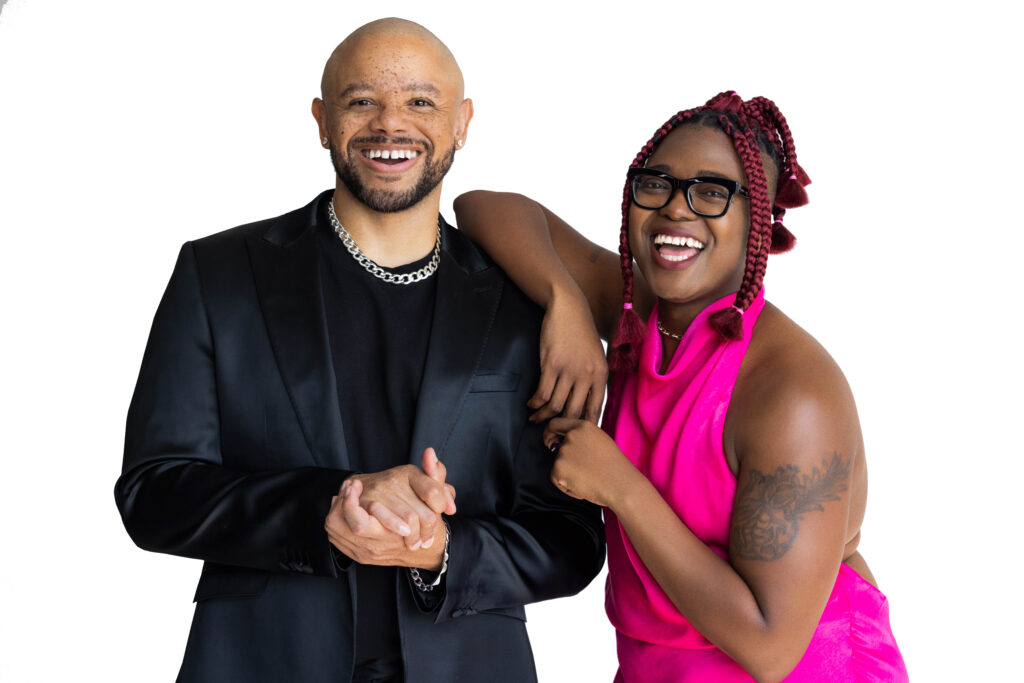Meet authors and super-podcasters, jarrett hill and Tre’Vell Anderson
Black vernacular doesn’t often get its due—despite its enormous influence on mainstream culture—but Historically Black Phrases is here to give Black language its flowers. A celebration of over two hundred staples of Black conversation from church sayings and units of measure to compliments and reprimands, this sharp and witty guide explores the unique importance of Black expression and communication.
Historically Black Phrases offers definitions and highlights notable pop culture moments when Black vernacular took center stage, as well as tips on pronunciation and usage for phrases like “feelin’ yourseIf,” “don’t get it twisted,” and “pop off.” In addition to the phrases, short essays offer insight into different facets of Black language from scholars, entertainers, and pop culture commentators (i.e. everybody and they mama).
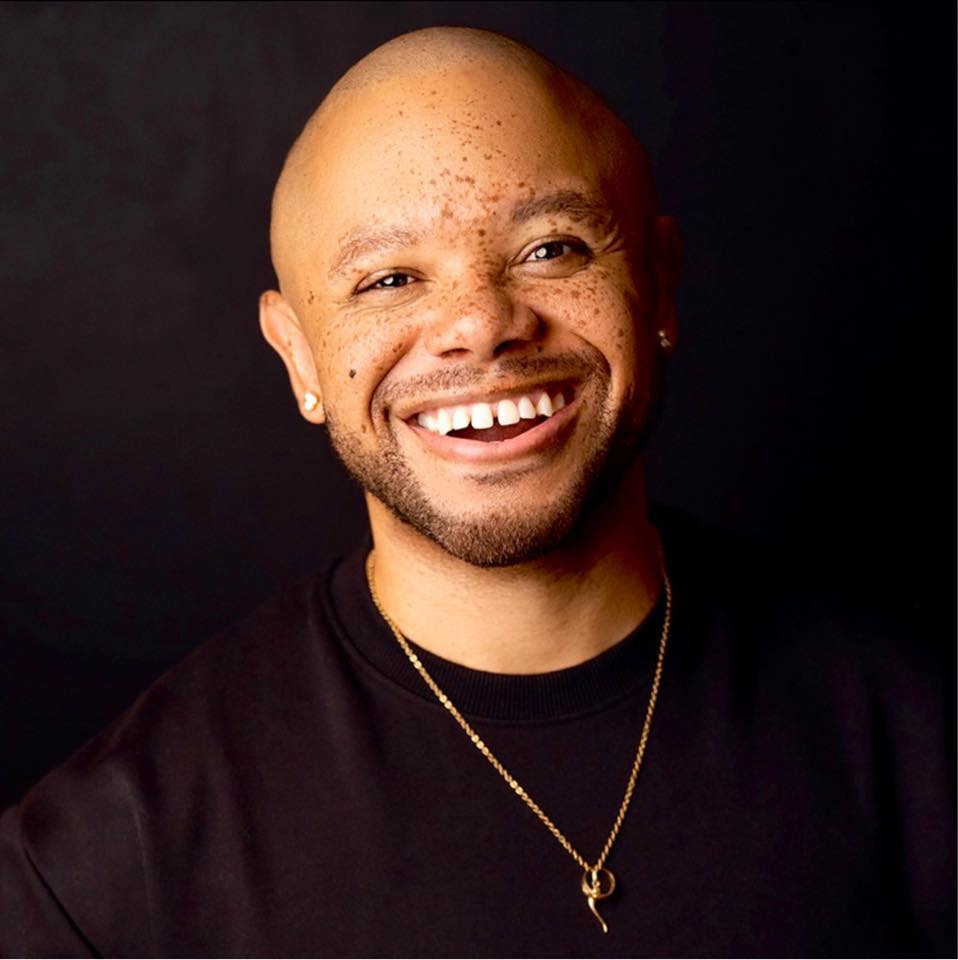
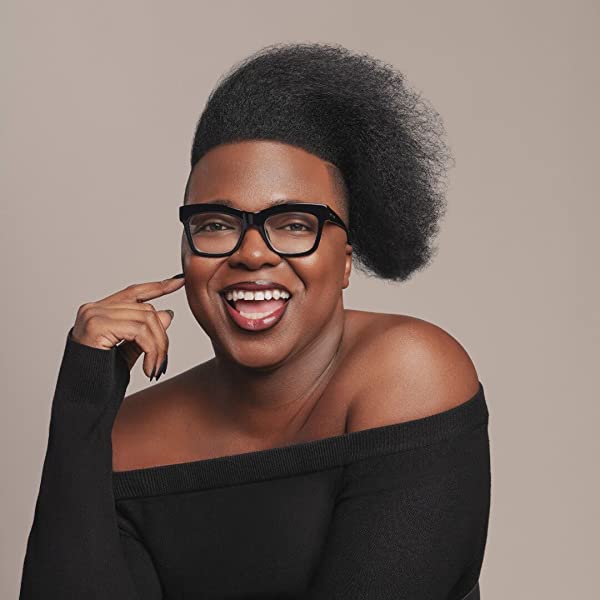
Authors, journalists, and hosts of the award-winning podcast FANTI, jarrett hill (he/him) and Tre’vell Anderson (they/them) examine each phrase with humor and cultural precision, making Historically Black Phrases a vital ode to how Black language influences the world, a fun and thoughtful dictionary of BIack Ianguage you didn’t know you needed, and a Iove letter to the Black community and the ways it drives culture.
We had a chat with jarrett and Tre’Vell to discuss their new book, who it’s for, and how Black language has definitely played a major role in shaping modern pop culture.
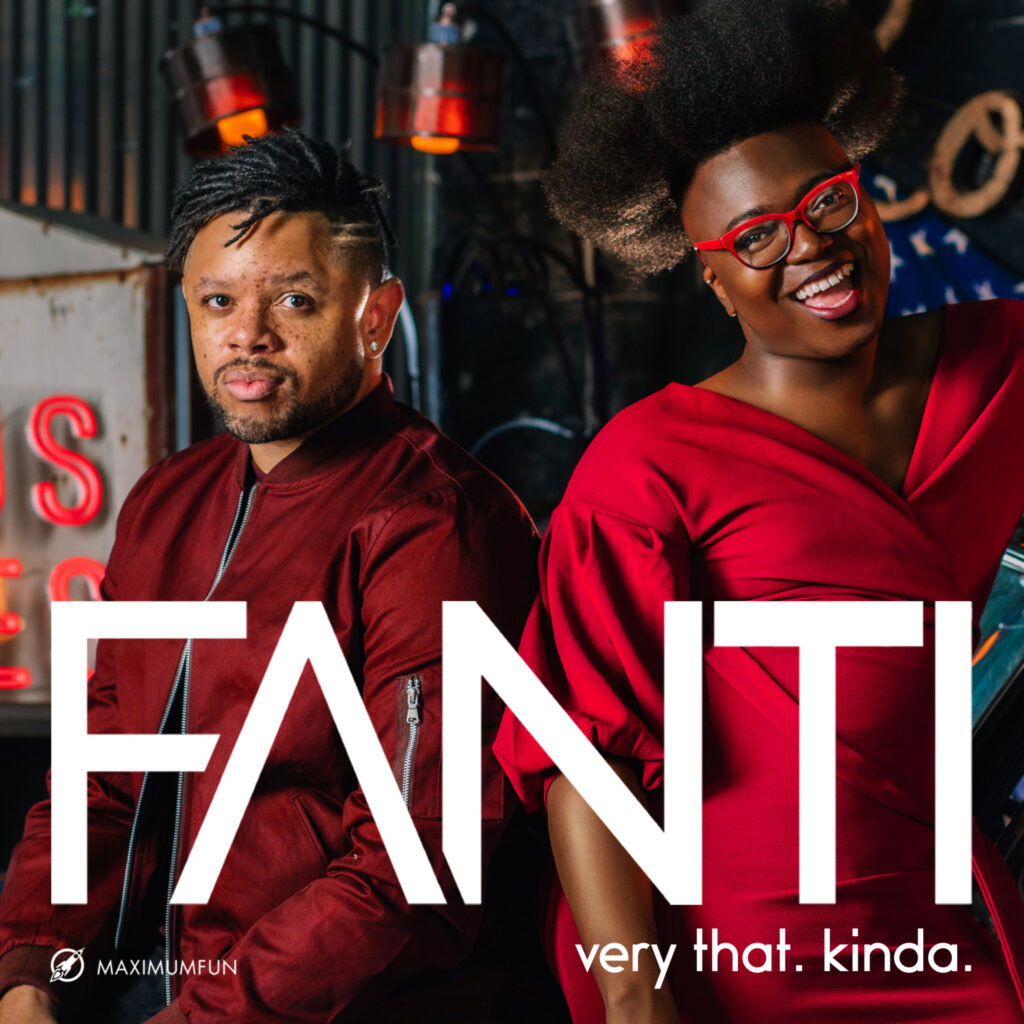
Kyle Jackson: Can you give us a bit about your background and what influenced your decision to write Historically Black Phrases?
jarrett hill: Historically Black Phrases started as a bit on Facebook, where I was defining things that Black folks say. After a few of them, it grew into something more. So, I pitched it as a book, and as a digital video series, and as a television show and did that for years. After it sat for a while, when I joined forces with Tre’vell, we put together a new pitch and sold the idea.
Overall, the intention of the book is to celebrate the ways Black folks speak and how we influence popular culture. We want to write our language, our slang, our flavor into history to give it the acknowledgment and respect it’s due.
Tre’vell Anderson: Because without us, the English language might be a bit stale. And it is always time that we give ourselves, our ancestors the credit that we are due, to continually assert that how we talk that talk is enough, too!
KJ: It seems like pop/mainstream culture and even popular LGBTQ culture benefit a lot from Black culture and AAVE. How do you feel about this? Does this bother you at all?
TA: Well as Black queer people we are walking, talking examples of the ways Black culture and queer culture — and southern culture and west coast culture and so on — all influence each other. The problems come into play when the originators are divorced from that which they’ve created, or that which we’ve popularized. That’s how we get to a place where the things we’ve been saying at the cookout or the kickback or in church are now up and down your For You page on social media not being said by Black people.
jh: In the book we have a number of essays that speak to this. We talk to various folks for perspective including actors, professors, journalists, friends and more about the particular ways that, for example, Black queer and trans people influence broader Black language and culture, which powers culture at large. We also dug into the reclamation of language and the varied feelings Black folks have with “nigga.”
KJ: What are some of the things you would like to tell people who use Black phrases and AAVE without understanding where it comes from? Would you encourage them to read this book?
TA: This is a book for Black people. We recognize that non-Black people might find themselves interested, and we love an ally who puts their money where they say their allyship is. But this is a book for Black people, by which I mean we’ve intentionally tried to write a book that is as unconcerned with the non-Black gaze as possible as a means of properly contextualizing how we communicate. Now, for the people using some of our phrases without knowing some of the context or appropriate meanings behind them… Let’s just say I wish they’d do the self education necessary to know for themselves, and to know better for themselves.
KJ: What do you hope other Black people will gain from reading Historically Black Phrases?
jh: I want Black folks to be able to laugh, feel validated, and learn something about our language. I’ve found, over the course of writing this book that I’ve felt more empowered to speak the way I speak and feel less inclined to code-switch in various spaces. In the book we discuss how code-switching works, illuminating that it’s not as innocuous as we may think, and it’s not as specific as a switch but shows up in various ways: our tone, vocabulary, inflection, etc. I hope it’ll encourage us to just think about how we speak and the ways we do it.
KJ: As a queer Black male myself, I LOVE Black mama phrases, such as “I ain’t one of your lil’ friends” and “Do I look like BooBoo the Fool”? What are some of your favorite Historically Black Phrases?
jh: Some of the early terms/phrases that I defined were “charge it to the game,” “casket sharp,” and “fuckboi” were things that were just coming up in convo. For whatever reason, at that moment in my life I found myself thinking about how we all say these things, but spell and pronounce them various ways, and typically mean similar things when we say them.
To be honest, my favorite is such a seasonal thing and it’s typically something we’ve been saying in convos a lot. Right now, Tre’vell has me saying “carry” more than I typically have. But I’m right there with you, this book wouldn’t have existed without my mom, listening to her on the phone with every “mmmhm,” “oooo, girl” and “I know that’s right!”
TA: One of my favorite phrases in the book is something my granny always said: “Used to the rooster don’t crow no more.” jarrett is convinced my granny is the only person who’s ever said it, but it’s said to someone who is stuck in their ways and finding it difficult to understand that the way they used to do something isn’t how it’s done now. I also love “You got McDonald’s money?” Because that’s a collective trauma we all have!
Historically Black Phrases will be published on Ten Speed Press and released on September 19th, 2023.
